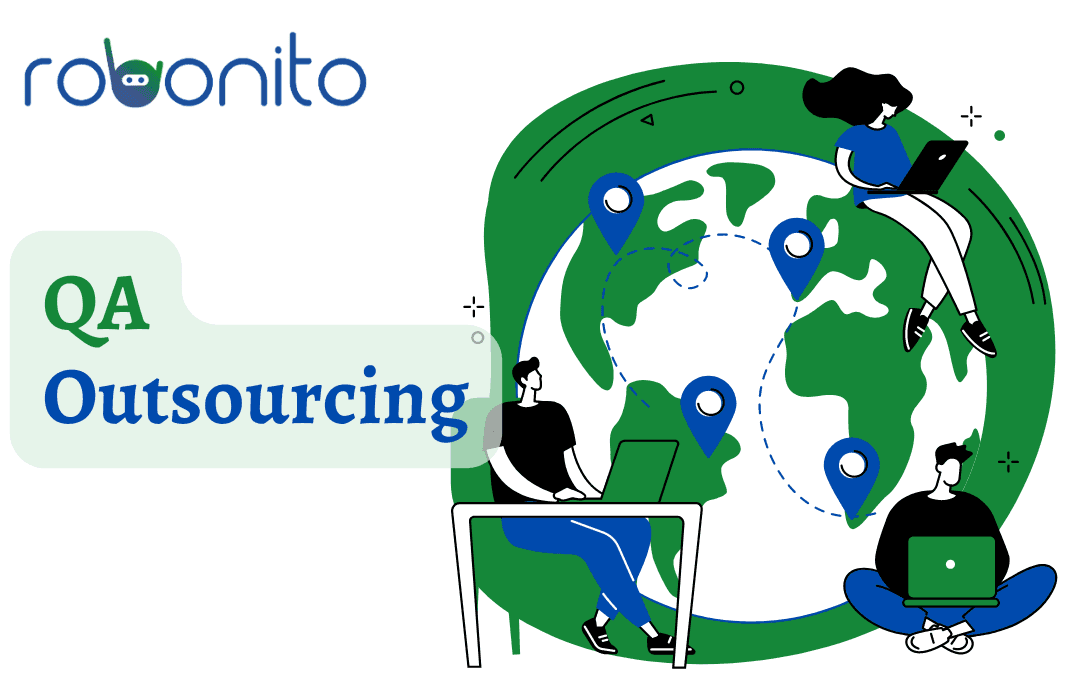In this article, we will explore the concept of QA outsourcing and its benefits, providing you with valuable insights to enhance the efficiency and effectiveness of your quality assurance processes. Are you struggling to maintain a high level of quality assurance in your software development projects? Do you find it challenging to allocate sufficient resources to thoroughly test your products? If so, QA outsourcing could be the solution you've been searching for.
Introduction to QA Outsourcing
Quality Assurance (QA) outsourcing refers to the practice of entrusting software testing and quality control activities to external service providers. It involves collaborating with specialized QA teams or companies that possess the expertise, experience, and resources to perform comprehensive testing, identify defects, and ensure software quality. By outsourcing QA, organizations can optimize their resources, streamline processes, and benefit from the proficiency of dedicated QA professionals.
Understanding the Need for QA Outsourcing
In today's rapidly evolving technology landscape, organizations face mounting pressure to deliver high-quality software products within tight deadlines. However, many companies struggle to maintain an in-house QA team capable of handling the increasing complexity and scale of modern software projects. This is where QA outsourcing becomes invaluable. By leveraging the expertise of external QA specialists, organizations can overcome resource constraints, meet project deadlines, and achieve optimal quality standards.
Advantages of QA Outsourcing
QA outsourcing offers several advantages that can significantly enhance the efficiency and effectiveness of quality assurance processes. Let's explore some of the key benefits:
Cost Savings
Outsourcing QA eliminates the need for investing in infrastructure, tools, and training. By partnering with a QA outsourcing provider, organizations can access a dedicated team of experts without incurring the costs associated with recruiting and retaining full-time employees. This cost-effective approach allows businesses to allocate their financial resources more efficiently and focus on core competencies.
Access to Specialized Expertise
QA outsourcing companies possess specialized knowledge and experience in testing methodologies, tools, and best practices. By leveraging their expertise, organizations can benefit from a comprehensive range of QA services, including functional testing, performance testing, security testing, and more. This access to specialized expertise ensures thorough testing and higher-quality software deliverables.
Scalability and Flexibility
With QA outsourcing, organizations gain the flexibility to scale their QA efforts according to project requirements. Whether you need to ramp up testing during peak periods or scale down during quieter times, outsourcing enables you to adapt quickly and efficiently. This scalability and flexibility allow businesses to maintain optimal QA levels while avoiding the overhead costs associated with fluctuating in-house teams.
Enhanced Focus on Core Competencies
By outsourcing QA, organizations can redirect their internal resources and expertise toward core business activities. Instead of allocating valuable time and effort to managing QA processes, teams can concentrate on product development, innovation, and customer satisfaction. This enhanced focus on core competencies can drive overall business growth and success.
Factors to Consider When Choosing a QA Outsourcing Partner

When selecting a QA outsourcing partner, it's crucial to consider several key factors to ensure a successful collaboration:
Experience and Expertise
Evaluate the experience and expertise of the outsourcing provider. Look for a partner with a proven track record in QA outsourcing and a deep understanding of your industry and specific testing requirements.
Communication and Collaboration
Effective communication and collaboration are vital for successful QA outsourcing. Choose a partner that demonstrates clear and proactive communication, ensuring that you remain informed and involved throughout the testing process.
Security and Confidentiality
Data security and confidentiality are paramount when outsourcing QA. Ensure that the outsourcing provider has robust security measures in place to protect your sensitive information and intellectual property.
Scalability and Flexibility
Consider the outsourcing partner's ability to scale resources and adapt to changing project needs. A flexible partner can accommodate your evolving requirements and ensure seamless collaboration throughout the engagement.
Quality Assurance Processes and Methodologies
Assess the outsourcing provider's QA processes and methodologies. Look for a partner that follows industry best practices and employs rigorous testing approaches to deliver high-quality results.
Key Steps for Successful QA Outsourcing
To make the most of QA outsourcing, follow these key steps:
60. Clearly define your QA requirements and goals.
62. Research and shortlist potential outsourcing partners.
64. Evaluate the capabilities and expertise of each partner.
66. Communicate your expectations and project scope clearly.
68. Establish a robust testing strategy and plan.
70. Maintain regular communication with the outsourcing team.
72. Monitor the progress and quality of the testing activities.
74. Collaborate closely with the outsourcing partner to address issues promptly.
76. Review the results and provide feedback for continuous improvement.
Common Challenges in QA Outsourcing and How to Overcome Them
While QA outsourcing offers numerous benefits, it's essential to be aware of common challenges and strategies to overcome them:
Communication and Time Zone Differences: Establish clear channels of communication and leverage collaboration tools to bridge the gap.
Cultural Differences: Foster an inclusive and respectful working environment that promotes cross-cultural understanding.
Lack of Control: Define clear guidelines and expectations, and maintain regular monitoring and reporting to ensure quality control.
Knowledge Transfer: Facilitate knowledge sharing through comprehensive documentation, training sessions, and effective onboarding processes.
Risk of Intellectual Property Theft: Ensure robust legal agreements and non-disclosure agreements (NDAs) are in place to protect your intellectual property.
Best Practices for Managing QA Outsourcing Relationships
To maximize the effectiveness of QA outsourcing, implement the following best practices:
Foster a strong partnership based on trust, transparency, and open communication.
Clearly define roles, responsibilities, and expectations for both parties.
Establish clear metrics and performance indicators to track and evaluate the outsourcing provider's performance.
Regularly review and assess the quality of deliverables to ensure adherence to predefined standards.
Conduct periodic audits and performance evaluations to identify areas for improvement.
Encourage knowledge sharing and collaboration between in-house and outsourced teams.
The Future of quality assurance outsourcing
As technology continues to advance and software development practices evolve, QA outsourcing is expected to play a significant role in shaping the future of quality assurance. With the emergence of new technologies such as artificial intelligence (AI) and automation, QA processes will become more efficient, accurate, and scalable. Organizations that embrace these advancements and leverage QA outsourcing will gain a competitive edge by delivering superior software products to the market.
Conclusion
QA outsourcing offers a compelling solution for organizations seeking to optimize their quality assurance processes. By partnering with experienced QA professionals, businesses can overcome resource
QA outsourcing offers a compelling solution for organizations seeking to optimize their quality assurance processes. By partnering with experienced QA professionals, businesses can overcome resource constraints, enhance efficiency, and ensure the delivery of high-quality software products. However, it's crucial to choose the right outsourcing partner, establish effective communication channels, and address potential challenges proactively. Embracing QA outsourcing can lead to improved productivity, cost savings, and increased customer satisfaction, enabling organizations to stay ahead in today's competitive software development landscape.
Revolutionize your software testing with Robonito, the ultimate no-code RPA automation testing tool. Say goodbye to endless testing hours – Robonito slashes testing time by a staggering 98%! Ready to experience the future of software testing? BOOK A FREE DEMO NOW and transform your testing process today!
FAQs (Frequently Asked Questions)
1. What is the difference between quality assurance outsourcing and in-house QA? QA outsourcing involves entrusting software testing and quality control activities to external service providers, while in-house QA refers to having an internal team responsible for these tasks.
2. How can quality assurance outsourcing help my business save costs? quality assurance outsourcing eliminates the need for investing in infrastructure, tools, and training, allowing businesses to allocate their financial resources more efficiently.
**3. Is quality assurance outsourcing suitable for small-scale software projects? **Yes, quality assurance outsourcing is suitable for businesses of all sizes. It offers scalability and flexibility, allowing organizations to adapt their QA efforts to project requirements.
4. Can I maintain control over the QA process when outsourcing? Yes, by establishing clear guidelines, expectations, and regular monitoring, you can maintain control over the QA process and ensure adherence to quality standards.
5. What are the risks associated with quality assurance outsourcing? Common risks include communication challenges, cultural differences, lack of control, knowledge transfer issues, and the risk of intellectual property theft. These risks can be mitigated through effective management and clear agreements with the outsourcing partner.
